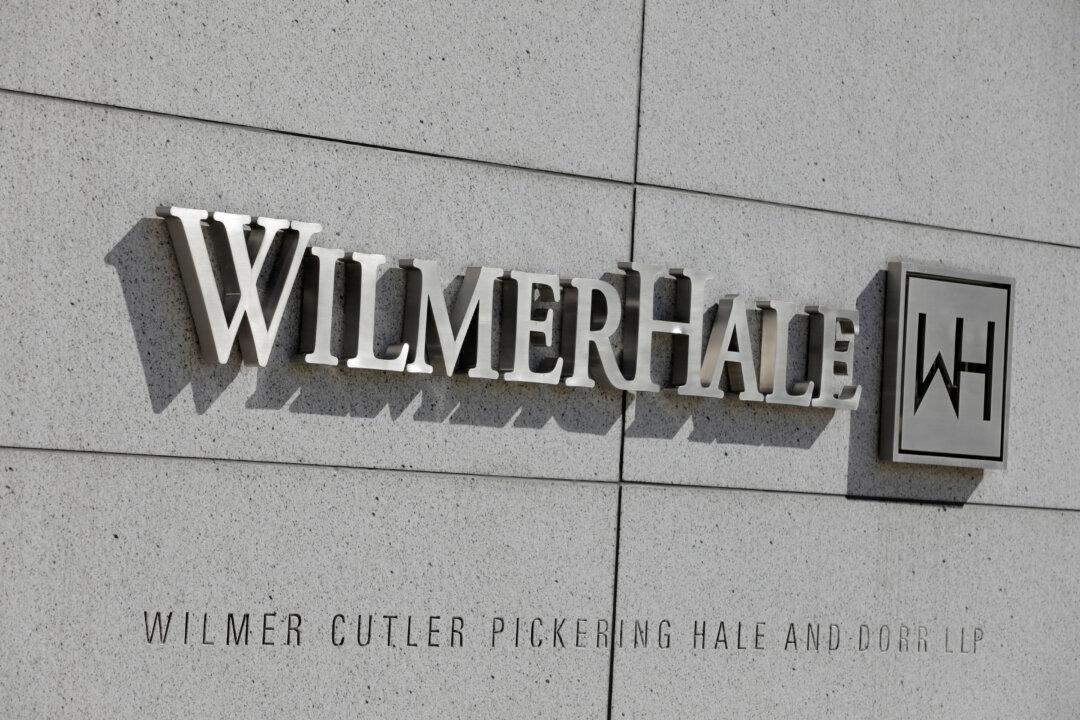Two major law firms urged separate judges on April 23 to permanently block President Donald Trump’s executive orders that revoked their security clearances and banned them from doing business with federal contractors.
Attorneys for Perkins Coie LLP asked District Judge Beryl Howell in Washington to grant them permanent relief from Trump’s order, arguing that it was issued in retaliation for the firm taking on clients and cases Trump disliked and that his actions violated its constitutional protections.




